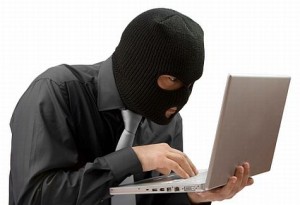Identity theft has become all too common, especially in a world where we’re using all kinds of technology that is not always as secure as it should be. Preventing identity theft is simply a matter of being careful with your papers, passwords, and information. Be aware, follow the following tips, and you can rest easy knowing that there isn’t another ‘you’ out there messing up your life.
Don’t leave a paper trail. Shred all your financial documents, statements, credit card receipts, pre-approved credit card absolutely anything you want to get rid of. Invest in a cross-cut type shredder and run all financial documents through it. No paper should leave your house in one piece. This will avoid anyone going through your trash or the dumpster from obtaining your financial and other private information which they could use to become you.
Be wary of shoulder-surfing. When using an ATM be careful to make sure there are no lurkers who might watch you punch in your pin number and get access to your account. Make sure that when you leave the ATM you are completely signed out of your account. If you use a smartphone you should also lock your screen with a password. In case you lose your phone someone who finds it should not be able to get your email or any other docs you might keep in there. Again make sure no one can pick up the password as you type it in.
Keep a check on your mail. Get checks delivered to your bank, not your home address, and do not mail checks from your home mailbox, drop them off at a post office or a U.S. mailbox, so that they are safe from mailbox theft. It is a good idea to get a locked mailbox to keep your mail safe in general, such as when a new credit card is delivered to you, are if you get an application for pre-approved credit cards, which incidentally you should opt-out from receiving anyways. A locked mailbox protects any private information that goes through there.
Keep your wallet flat. Do not carry around credit cards that you do not use, social security numbers, or any other identifiers that could lead to abuse if it gets into the wrong hands. Never carry your social security card, which should be kept locked away at your home, as also with any blank checks, your passport, and birth certificate. Also, cancel all credit cards you have not used in 6 months so as not to leave an open credit line dangling. Also, get your credit and debit cards with your picture on them for added security, and never put your address or telephone number on a receipt from a credit card sale.
Online security. Use passwords with sufficient strength and complexity to protect your accounts. Memorize the passwords, or if you must write them down keep them in a locked drawer. Do not put your credit card number on the Internet unless it is on an encrypted site. And be especially wary of ‘phishing’ – where a fake site presents itself disguised as a real one, such as your online banking site and exhorts you to put your information on it which then gets recorded and misused.
Financial awareness. Keep a tab on all your accounts so as to immediately pick up on any unusual activity, including unfamiliar charges, large withdrawals, suddenly low balance, etc.
Get a FREE Quote
[xyz-ips snippet=”landing-form”]

